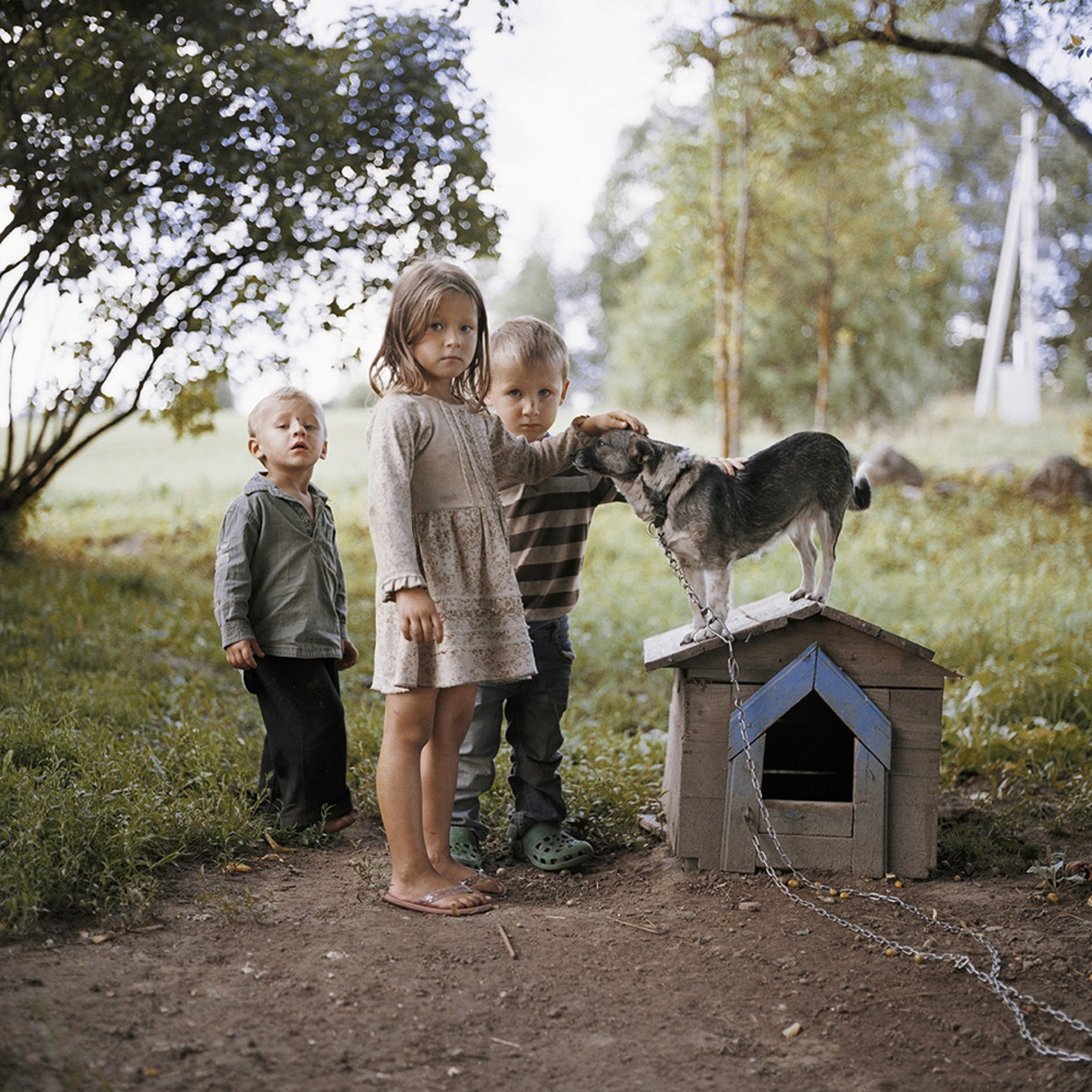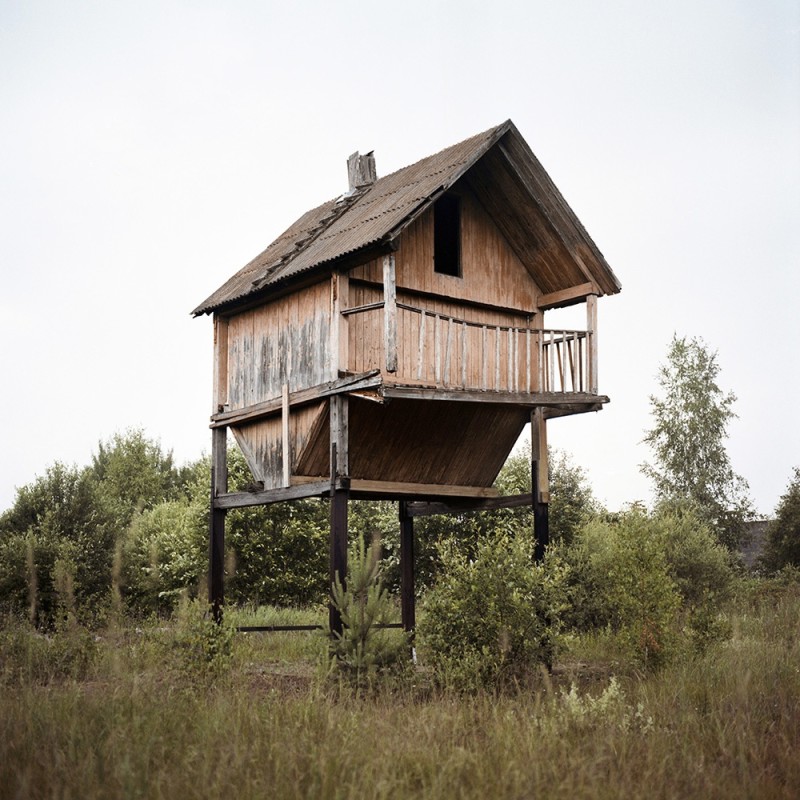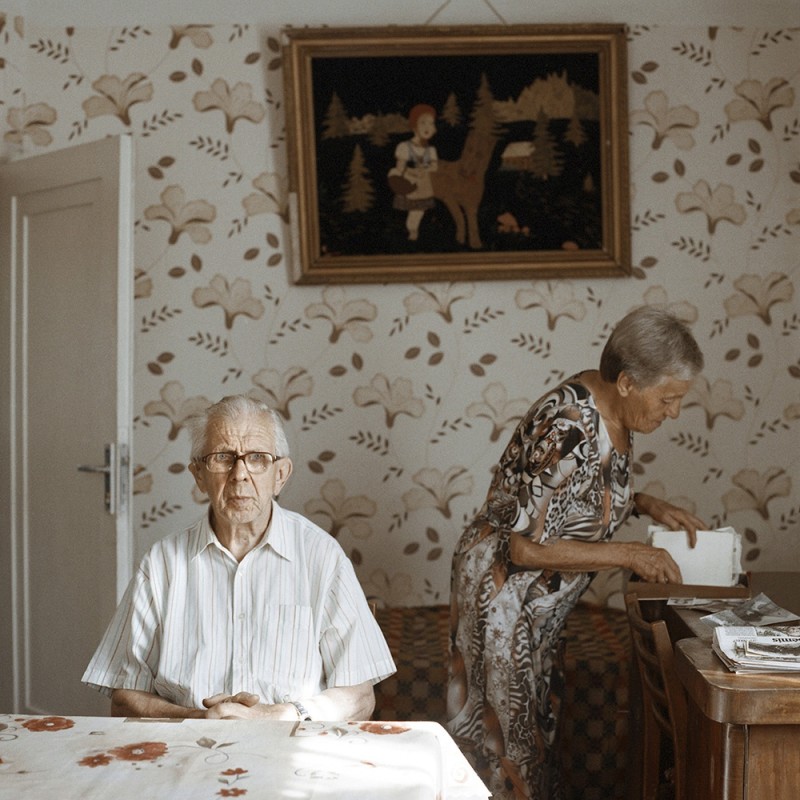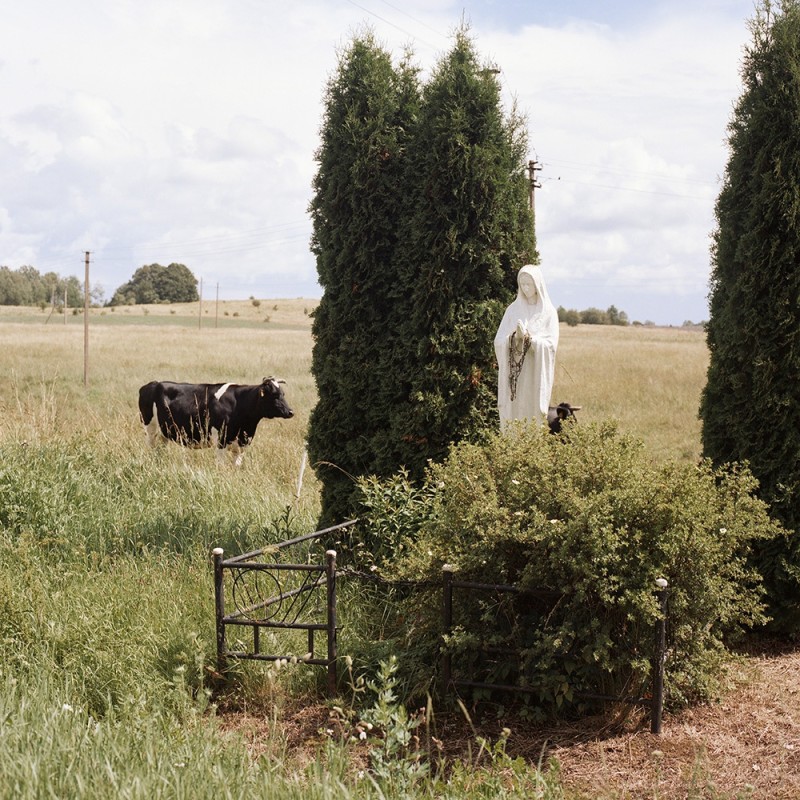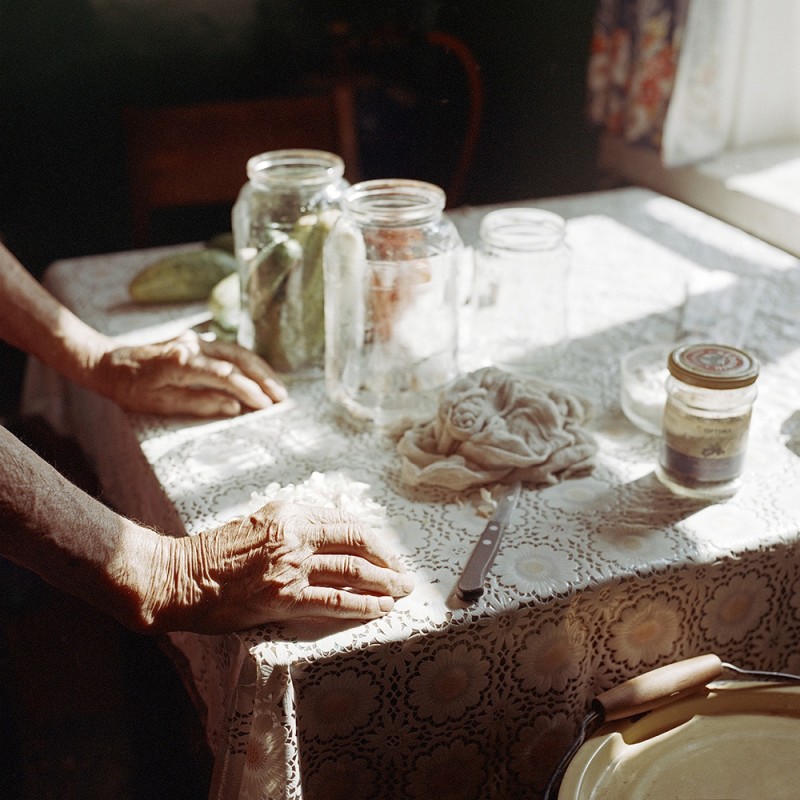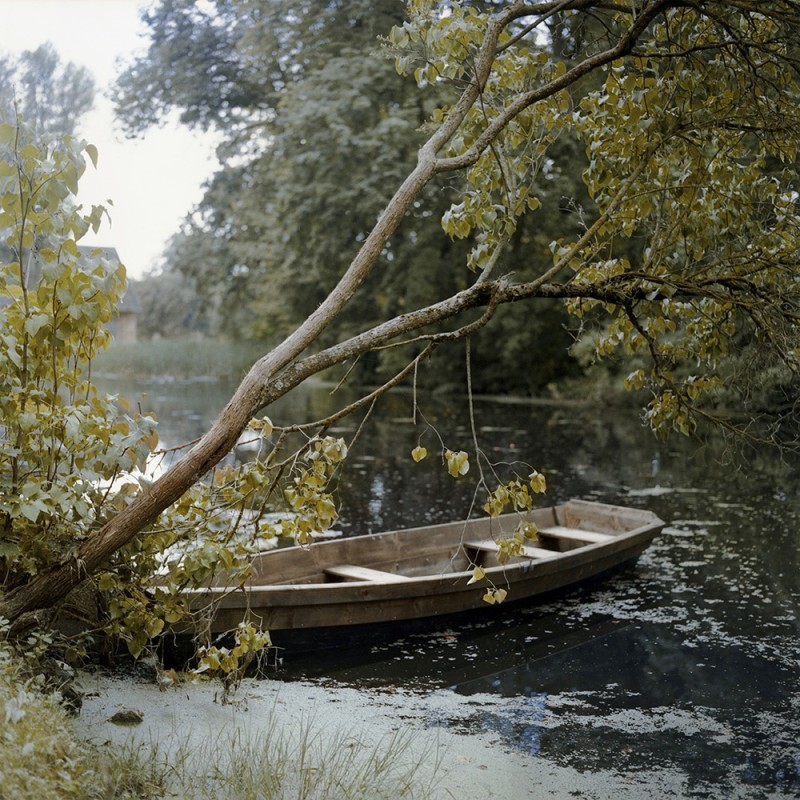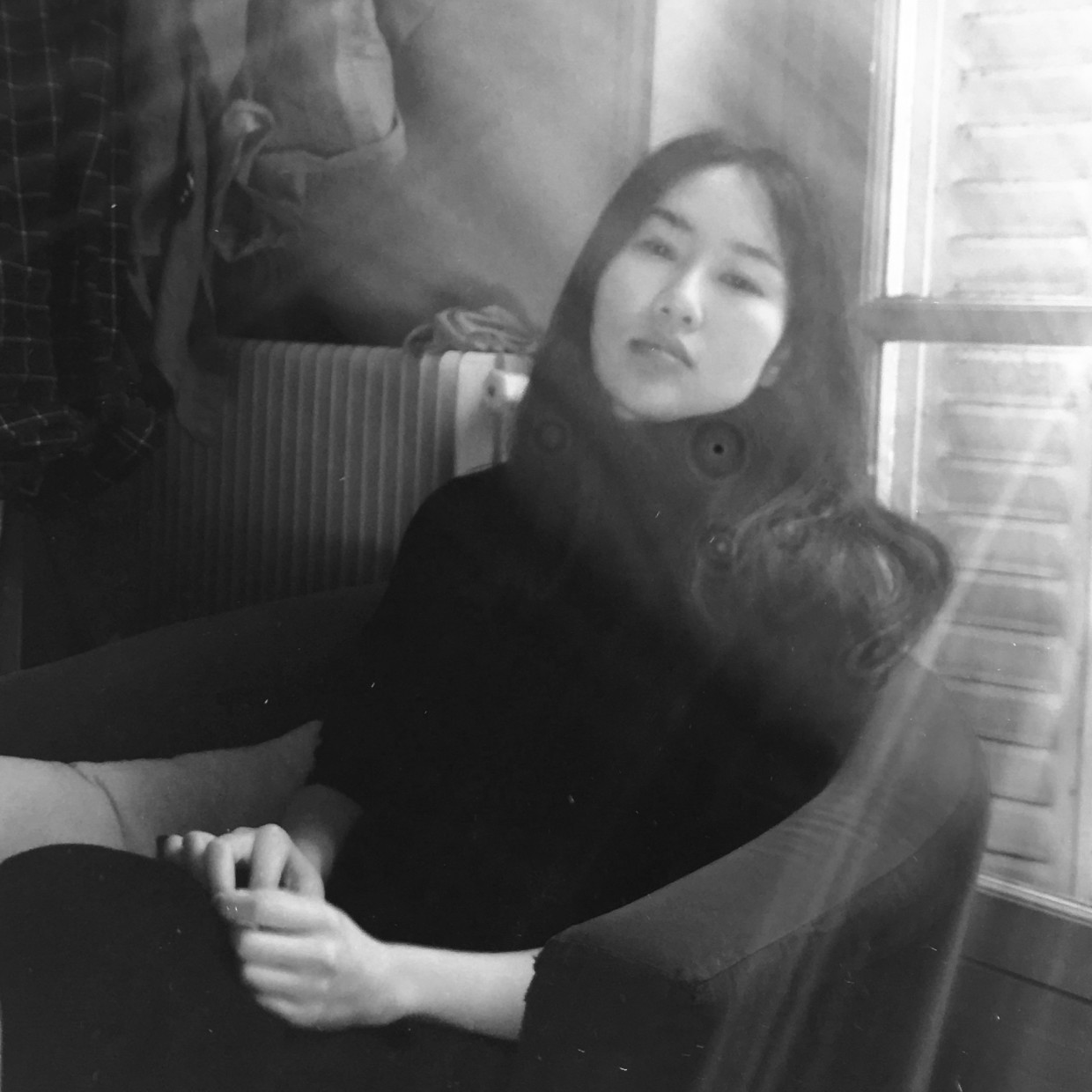Soon to Be Gone
Artists: Tadas Kazakevičius
Curator: Qi Yan
A flock of sheep resting in the shade of the trees, fresh milk on the meadow, and a man leaning against a haystack… these scenes, once lost in childhood memories, now resurface. Young Lithuanian photographer Tadas Kazakevičius' journey through the countryside was akin to that of the man from Wuling who chanced upon the Peach Blossom Spring. Kazakevičius explored villages on "a spread of level land. Imposing buildings stood among rich fields and pleasant ponds all set with mulberry and willow. Linking paths led everywhere, and the fowls and dogs of one farm could be heard from the next." [1]
In recent years, rural areas in Lithuania have lost population at surprising speed. Many residents have left the countryside for more comfortable and convenient lives in the city, which has resulted in a reduced rural population, abandoned villages, and the gradual industrialization of rural areas. This has happened or is happening in Lithuania and many other countries. After Lithuania declared independence in 1990 and joined the European Union in 2004, the tide of migration toward the capital and onward to other European countries reduced the Lithuanian population by more than one-sixth. Kazakevičius noticed this phenomenon, and during his five years in the UK, he returned to Lithuania multiple times to visit the countryside. His childhood in the countryside and his early contact with the photographs of Walker Evans and Dorothea Lange gave him an unusual sensitivity to rural scenes and changes in them. After returning to Lithuania in 2012, Kazakevičius began to prepare for his trip, and two years later, he set off on his bicycle with his camera in tow. In the second year of the project, he received some funding for his photographs, and he bought a motorcycle. Over the course of five years, Kazakevičius rode more than 7,000 kilometers, beginning with his father's birthplace of Reškutėnai, located in eastern Lithuania and ending with his mother's (and his) birthplace of Šiauliai, located in the northern part of the country.
Empty wooden houses occasionally appear in Kazakevičius' pictures. In the past, one could imagine their owners carefully fixing the roof or the windows every weekend, but now they lay in ruins. The upturned chairs will never be righted, and even the placement of the dust will not change. Kazakevičius was warmly welcomed by the remaining residents. With the keen eye of an outsider, he recorded their lives, labors, and family photographs in images that are calm and restrained but do not lack warmth.
However, society's desire to move forward cannot be stopped, and the shrinking of farms and rural populations cannot be hindered. Strictly speaking, the beautiful pastoral scenes will not disappear. In Kazakevičius' works, the light scattered on a young person's shoulders is still bright and the honey collected by the beekeeper is still sweet. We will say goodbye to the farming lifestyle traditional to the countryside. Tadas Kazakevičius' "Soon to be Gone" is a personal travelogue, but it is not pure nostalgia; the series is more like a sound coming from the distance or a guide to common human memories of rural life.
References
[1] Tao, Qian. "Peach Blossom Spring." In Anthology of Chinese Literature, Volume I: From Early Times to the Fourteenth Century, edited by Cyril Birch, 167-168. New York: Grove Press, 1965.
